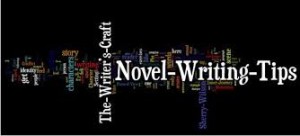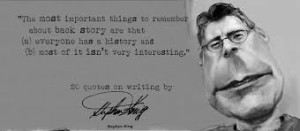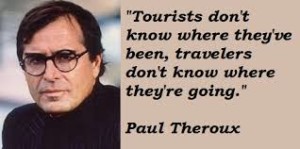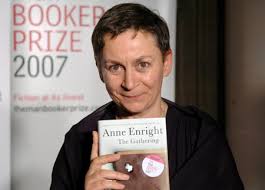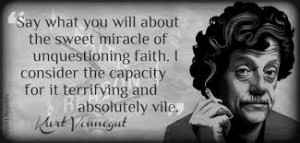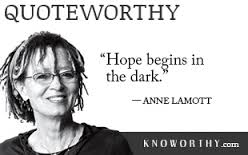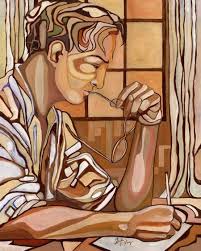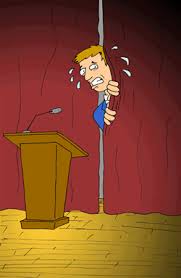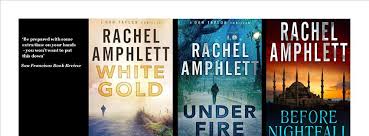By day, Adam ‘R’ is a true-to-life, serving Detective. By night, he advises screenwriters and novelists on realism in their craft. Every day Adam lives in the policing line-of-fire and today he shares his thoughts on DyingWords.
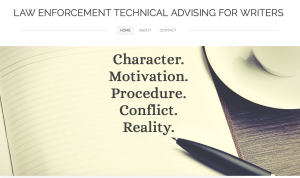 Did you see the story about the Detective Sergeant that can’t sleep until the case is solved? You know the one, where this maverick cop breaks all the rules to nab the crook… because this time…it’s personal?
Did you see the story about the Detective Sergeant that can’t sleep until the case is solved? You know the one, where this maverick cop breaks all the rules to nab the crook… because this time…it’s personal?
It’s not only cliché, it’s not reality. Detectives work heinous cases every single day and yet they balance their case loads with their regular lives away from work. They still pick up groceries, spend time with the kids, pay bills, and try to remember to put the trash out just like everyone else, regardless of how sickening, depressing, or exciting their work life is.
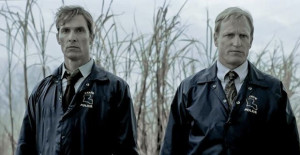 If you don’t intend to delve into your detective’s personal life, you should probably ask yourself: Are the circumstances of your story’s “case” really going to cause your detective to be so emotionally invested? Convince your reader that this case is something special. It needs to be for it to be plausible that your detective forgets about the rest of daily life.
If you don’t intend to delve into your detective’s personal life, you should probably ask yourself: Are the circumstances of your story’s “case” really going to cause your detective to be so emotionally invested? Convince your reader that this case is something special. It needs to be for it to be plausible that your detective forgets about the rest of daily life.
Next, there’s the maverick cliché. It takes far more than workaholism and a lacking social life to be a great detective. It takes knowing “the rules” inside and out, and being the best at playing WITHIN those rules! Detectives are investigating law-breakers; they generally shouldn’t be the ones breaking the law. Breaking the rules usually means letting the bad guy go free eventually.
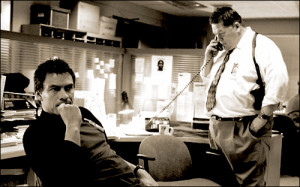 As the author, you should understand the consequences your detective faces for not playing by the rules. Just as you want to keep your story moving, real detectives don’t want to waste time when a life is on the line or a suspect might be moments from getting away.
As the author, you should understand the consequences your detective faces for not playing by the rules. Just as you want to keep your story moving, real detectives don’t want to waste time when a life is on the line or a suspect might be moments from getting away.
So how do we play by the rules and keep the tempo up? Just like your brilliant detective, learn when the Miranda Admonishment and search warrants are required and what the exceptions are. Research the legal term “exigent circumstances” to learn when your detective can legally boot the suspect’s door without a search warrant.
Another tool your detective should be familiar with is a “telephonic search warrant”.
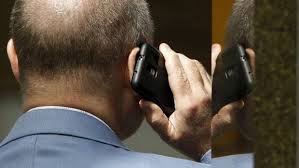 To obtain that search warrant quickly, your detective doesn’t need to run back to the office and start typing. Armed with an audio recorder and a telephone, your detective can get a prosecutor and a judge on the phone and verbally explain the probable cause for the search warrant. Once the judge says the warrant is approved, your detective can now legally bust down the door. There is obviously a little more to the real legal paperwork process after the recorded phone call, but consider it another tool your fictional detective has for doing things the real way.
To obtain that search warrant quickly, your detective doesn’t need to run back to the office and start typing. Armed with an audio recorder and a telephone, your detective can get a prosecutor and a judge on the phone and verbally explain the probable cause for the search warrant. Once the judge says the warrant is approved, your detective can now legally bust down the door. There is obviously a little more to the real legal paperwork process after the recorded phone call, but consider it another tool your fictional detective has for doing things the real way.
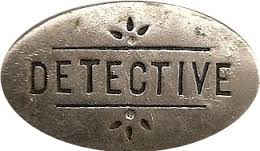 You’ll notice that I keep referring to your protagonist as a “Detective.” It’s important to note that “Detective” is usually a formal rank, one that is one step above a uniformed patrol officer. The rank is often abbreviated as “Det.” and is often equivalent to a Corporal. A detective’s main responsibility is to follow up on the investigations that are started by the uniformed officer’s initial response to a crime.
You’ll notice that I keep referring to your protagonist as a “Detective.” It’s important to note that “Detective” is usually a formal rank, one that is one step above a uniformed patrol officer. The rank is often abbreviated as “Det.” and is often equivalent to a Corporal. A detective’s main responsibility is to follow up on the investigations that are started by the uniformed officer’s initial response to a crime.
One of the departures from reality that authors commonly make is to give their investigating protagonist a rank higher than Detective, usually to make the character seem more important or experienced. The reality is the higher the rank your character holds, the less likely s/he is to be actually playing an active role in the investigation. Or worse, s/he is more likely to be a controlling micro-manager that the subordinate Detectives dislike.
 The rank of Sergeant (or Detective Sergeant) is that of a line-level supervisor, overseeing a team/squad/bureau of Detectives. The Detective Sergeant is the one that will be reviewing all of the incoming reports from the patrol division and assigning workable cases to the Detectives s/he supervises. The Det. Sgt. usually reviews and approves search warrants or reports before being officially submitted. Most importantly, the Det. Sgt. is the one who acts as a buffer between the Detectives and Management.
The rank of Sergeant (or Detective Sergeant) is that of a line-level supervisor, overseeing a team/squad/bureau of Detectives. The Detective Sergeant is the one that will be reviewing all of the incoming reports from the patrol division and assigning workable cases to the Detectives s/he supervises. The Det. Sgt. usually reviews and approves search warrants or reports before being officially submitted. Most importantly, the Det. Sgt. is the one who acts as a buffer between the Detectives and Management.
The rank of Lieutenant (or Detective Lieutenant) is usually considered middle-management. Think of Lieutenants as the spreadsheet obsessed bosses that are mainly worried about budgets and statistics, just like any middle-manager found in the corporate world.
 If you’ve chosen a specific department for your character’s employment, do the research on their rank structure. For example, LAPD has multiple tiers of Detective Rank, such as D-2 or D-3. Some agencies don’t utilize the Lieutenant rank. In the United States, West Coast police agencies rarely have “Majors” or “Colonels” as titles in their rank structure, whereas those ranks are more common in Eastern and Southern states.
If you’ve chosen a specific department for your character’s employment, do the research on their rank structure. For example, LAPD has multiple tiers of Detective Rank, such as D-2 or D-3. Some agencies don’t utilize the Lieutenant rank. In the United States, West Coast police agencies rarely have “Majors” or “Colonels” as titles in their rank structure, whereas those ranks are more common in Eastern and Southern states.
If your character is a Det. Sgt., a Det. Lt., or a DCI (for our UK authors), you might be overshooting his or her rank versus the true assignment. None of this is to say you shouldn’t use artistic license in your storytelling.
However, nailing the realities of the police work aspect will make the suspension of disbelief a little easier when the rest of your story leads somewhere a little more off the wall.
* * *
 Adam R. is a real-life, serving Detective in Southern California who also provides technical advising to authors and screenwriters. Adam asked that his last name be masked out of caution for conflict of interest. To learn more about the realities of police work, and how it applies to creating realistic fiction, visit Adam’s blog:
Adam R. is a real-life, serving Detective in Southern California who also provides technical advising to authors and screenwriters. Adam asked that his last name be masked out of caution for conflict of interest. To learn more about the realities of police work, and how it applies to creating realistic fiction, visit Adam’s blog:
http://www.writersdetective.com/
Follow him on Twitter: https://twitter.com/writersdetctive

